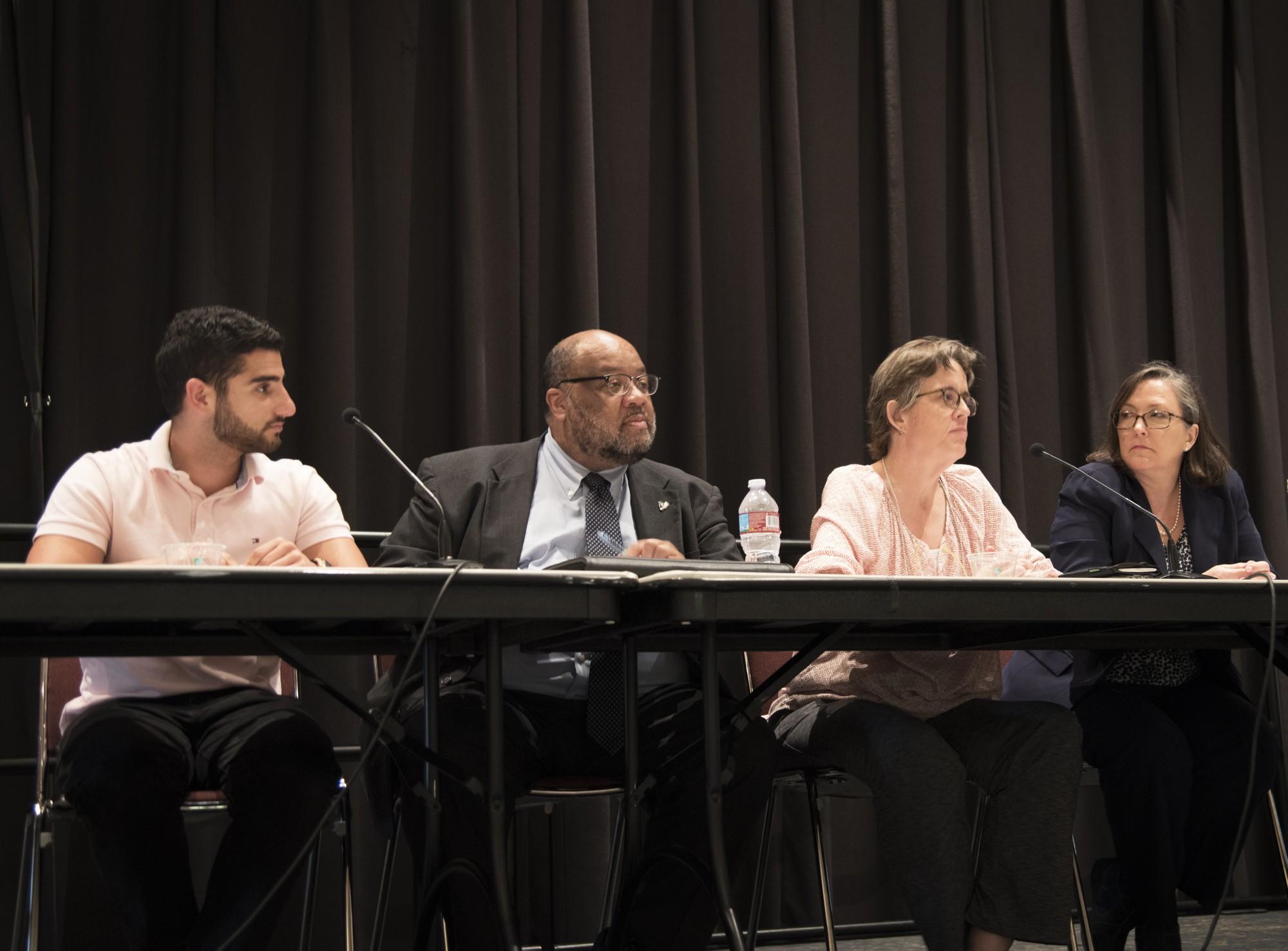Improving CSUN’s student success rate was the focal point of the first Town Hall meeting of the fall 2016 semester.
The emphasis was not only obtaining a degree but preparing students for what comes after graduation.
According to President Harrison’s welcome address speech last fall, the 2025 initiative includes increasing graduation rates of four-year graduates by 76 percent.
The panel, which included faculty and one student leader, opened up discussions and welcomed participants to voice their ideas and opinions about plans for higher education and student excellence.
It was unanimous that students need to be encouraged early on in their academic career to work towards developing their passion for what comes after they get their degree.
“EOP, for 47 years, has always had the logo of making a difference in students lives and it wasn’t always about getting a degree, but how to they get to a place that instills confidence and motivation,” said EOP Interim Director, Shiva Parsa. “Students do need help getting that mindset that they are not alone. I agree with the panel that its not just about getting that degree, but its about success in life after the degree.”
Participants discussed the meaning of student achievement and the difference between higher education and student success 20 years ago versus today.
“I think 20 years ago we had and we still have the curriculum divided up into units,” said Elizabeth Adams, Vice President of Undergraduate Studies. “We’re not talking about that now. Success isn’t about those 120 units to graduate, it’s about what comes out of them.”
The big question is finding out how faculty can get students motivated to be interested and involved in their academic careers. Most students have other obligations in their lives such as work, relationships and family, so it’s not always possible to take 15 units a semester.
“One of the things that I hope we would be able to think about is how we can as an institution meet the needs of nontraditional students as well amongst these goals and think about how we might be able to offer more night classes for our fully employed students,” said Diane Stephens, Associate Vice President of Academic Resources and Planning.
Not all students can graduate in a timely fashion. The 2025 initiative should help those students that can’t graduate on time get what they need to be successful in their academic career and what comes after.
“When the students come into the university, whether they are a freshman or transfer, they think that they are going to end up finishing within a timely manner,” said Sevag Alexanian, Associated Students President. “The only other classes that are offered are in fall semester or spring semester and that ends up impeding with the graduation rate or the timeliness of the graduation so if and when we are successful with our 2025 initiative, these things will be eradicated.”
The presence of campus decision makers at Town Hall meetings offer an opportune environment for anyone to voice their opinions or grievances.
“We’re hoping that out of all of the meetings, that what people get is that this really is a problem we have to solve collectively and collaboratively and creatively, that we can’t address student success in our own silos, we have to do it together,” said Kristy Michaud, director of student success and innovations.






